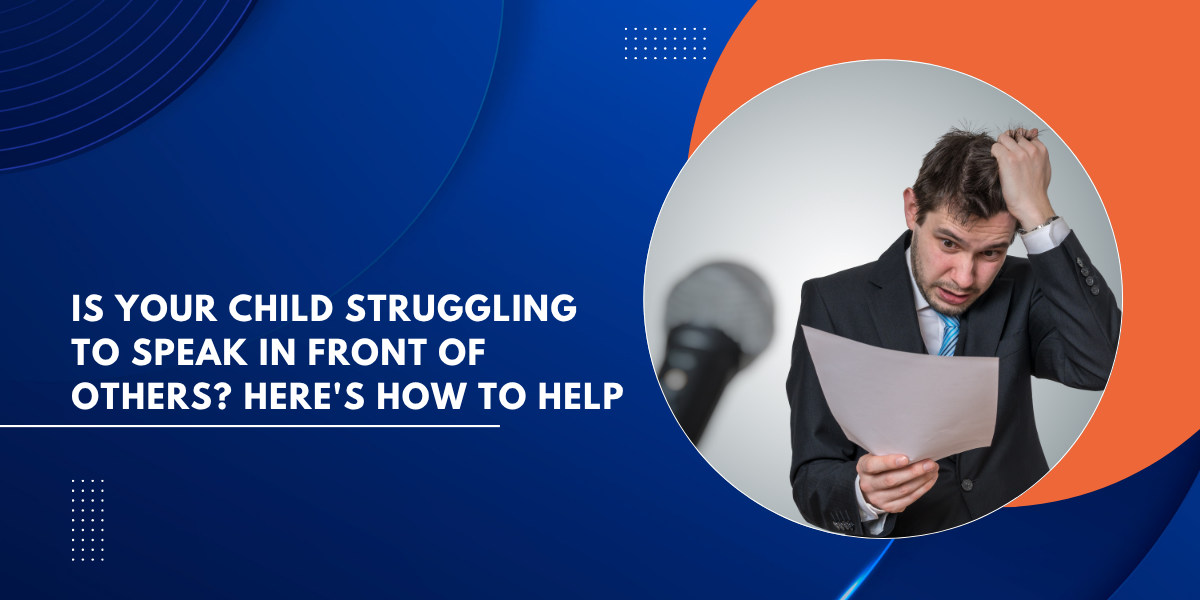By Preethi Durga, Career Strategist & Education Innovator
Public speaking. For some kids, even saying a few words in front of classmates feels like climbing a mountain. Sweaty palms, shaky voices, and blank stares—it’s more common than you think. And if you’re a parent watching from the sidelines, it’s tough not to feel concerned.
Over the years, I’ve met many students who are bright, thoughtful, and full of ideas—but the moment they’re asked to speak up, they freeze. Parents often ask me, “Why is my child so confident at home but quiet in school?” or “How do I help them open up and express themselves better?”
Here’s the truth: building the confidence to speak in front of others takes time. It’s not just about talking louder—it’s about helping children feel heard, safe, and prepared. And yes, learning the importance of presentation skills plays a big role in this journey.
In this blog, I’ll share what really works when it comes to helping your child find their voice.
1. The “Maybe Next Time” Mindset
One of the most common things I hear from parents is: “My child says they’ll speak next time, but that next time never comes.”
This mindset is more common than you think. Children often delay speaking in front of others because the task feels too big, too scary. They may say they’ll raise their hand “tomorrow” or speak “in the next class presentation,” but deep down, they’re avoiding discomfort.
Here’s something I always suggest: don’t wait for a big moment to start. Start small. Encourage your child to say a few lines at home during dinner or share a story with a close family member. These tiny wins slowly build comfort and confidence.
If we want to help our children, we need to gently guide them out of their shell. This is where the importance of presentation skills truly begins—by helping them express themselves in low-pressure settings first.
2. Confidence Starts with Focus
Many parents think that children who can’t speak up just need more “push.” But what I’ve observed is that confidence in speaking often comes down to focus and presence.
Has your child ever gone blank while speaking, even though they knew exactly what to say? That’s not because they forgot—it usually means they were just too nervous
Learning to stay calm, present, and focused in the moment is a big part of building communication skills. And it’s something that improves when kids regularly practice the basics: eye contact, posture, and tone.
This is another reason why the importance of presentation skills can’t be overstated. When kids practice speaking regularly, they don’t just learn how to say things, they learn how to manage their emotions while doing it.
3. Create a Safe Practice Space
Children open up when they feel safe. A calm, encouraging space at home can make all the difference.
You don’t need fancy props or a stage. Just a quiet corner, some positive attention, and a bit of time. Let your child practice speaking about their day or explaining their favourite hobby. You can even turn it into a game—like a mini “news hour” where they pretend to be the anchor.
Even five minutes a day can make a big difference. It shows them that their voice matters and that speaking up is a skill worth practicing.
This is a gentle way to introduce the importance of presentation skills at home—without pressure, just with presence.

When a School Presentation Is Just Days Away
Let’s say your child has a class presentation coming up in a week. Most parents either start panicking or push their child to “just practice more.” But in my experience, this is exactly when kids need clarity.
The week before a presentation shouldn’t be about writing a brand-new speech from scratch. Instead, it should focus on practice, polishing, and presence.
Here’s what works: get your child to rehearse in short bursts—maybe five minutes in the morning, ten minutes after school. Record them once, then watch it together. Focus on one improvement at a time—voice tone, eye contact, or pacing.
You don’t need to chase perfection. What your child needs to feel is this: “I’m ready enough.”
And this is where the importance of presentation skills becomes very real. These aren’t just for debate competitions. They help kids organise their thoughts, speak with clarity, and stay calm under pressure.
Managing Presentation Anxiety
Nervous before speaking? That’s totally normal. I’ve seen it with even the most confident kids.
The trick is helping them work with their nerves, not against them.
So here’s what I suggest: the night before the presentation, keep things light. No last-minute cramming. Let your child wind down with a warm bath or calming music. Help them lay out what they’ll wear, prep their cue cards, and pack their bag calmly.
On the day itself, remind them: “You don’t have to impress anyone. Just speak your part. That’s enough.”
Some tips that really help just before speaking:
- Avoid chatting with peers who add to stress
- Rehearse quietly to yourself one last time
- Breathe slowly before stepping up
- Smile—even a small one can shift your energy
Tell them this:
“You don’t need to be perfect—you just need to show up and try.”
The earlier children begin to understand the importance of presentation skills, the more confident they’ll become—not just in school, but in life.
These skills help them perform better in academics by expressing their thoughts clearly, answering questions with ease, and participating in class activities without fear.
And over time, the same skills become the foundation for success in college interviews, career opportunities, and leadership roles.
So start small, start early—and keep encouraging progress over perfection.

One Performance Doesn’t Define Their Potential
Just because a child fumbles during one presentation doesn’t mean they’re “bad at speaking.” It just means they’re still learning.
Presentation skills grow with time and experience. What matters more is how they bounce back, learn from it, and try again.
As a parent or teacher, your role is crucial. Focus on effort, not just outcome. Praise the attempt. Share your own stories of speaking nerves. Let them know they’re not alone.
That’s the true importance of presentation skills—not just to speak well, but to grow resilience, self-belief, and expression.
In Conclusion
If there’s one thing I’ve learned from working with students and listening to concerned parents, it’s this: confident speaking doesn’t come from last-minute pep talks, it comes from steady support and simple, daily practice.
The children who speak well aren’t always the loudest or the most outgoing. Often, they’re the ones who’ve had space to grow, chances to try, and people who reminded them that their voice matters.
At NextMovez, we understand that building confidence takes time. And that the importance of presentation skills goes far beyond winning competitions. It’s about helping children feel heard, seen, and secure in their ideas.
If your child hesitates to speak up, avoids presentations, or struggles with stage fright, we’re here to help. From personalized coaching to communication workshops, we support students in finding their voice—one step at a time.
Want to help your child feel more confident and express themselves clearly? Reach out to us here.






















